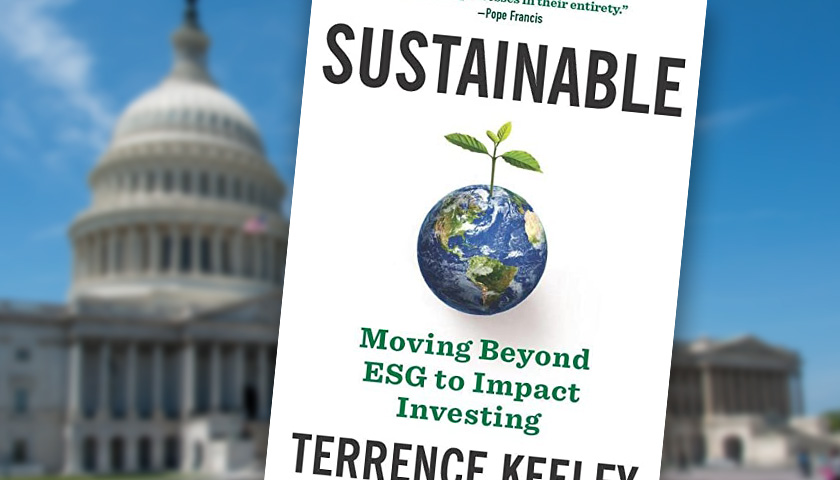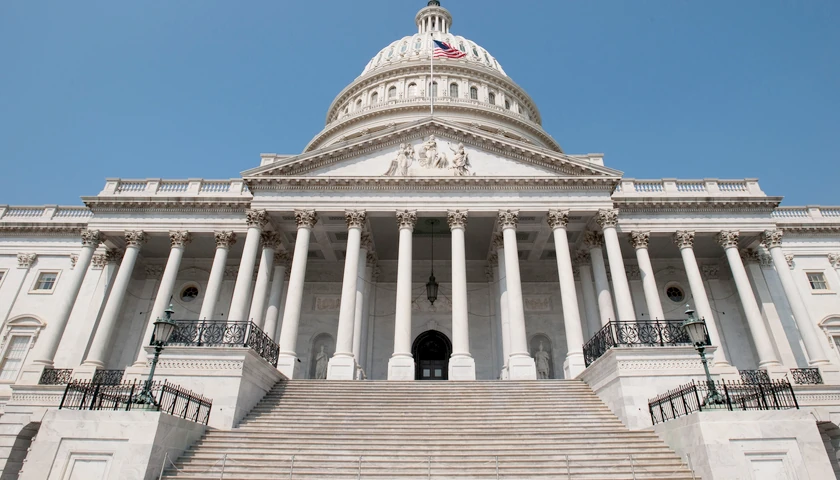by Rupert Darwall
ESG has its origins in a speech by UN secretary-general Kofi Annan at the Davos World Economic Forum in 1999. In the first of his four part review of Terrence Keeley’s Sustainable, Rupert Darwall shows how this created ESG’s dual mandate that accounts for its success – and its unsustainability as an investment strategy.
“On my previous visits, I told you of my hopes for a creative partnership between the United Nations and the private sector,” the UN secretary-general, Kofi Annan, told business and finance leaders at the World Economic Forum in Davos in January 1999. “Without your know-how and resources, many of the UN’s objectives would remain elusive,” the secretary-general continued.
This year, I want to challenge you to join me in taking our relationship to a still higher level. I propose that you, the business leaders gathered in Davos, and we, the United Nations, initiate a global compact of shared values and principles, which will give a human face to the global market.
Annan then called on business leaders to “embrace, support, and enact” a set of core values with respect to human rights, labor standards, and environmental practices.
Within two years, the Global Compact attracted about a thousand corporations. In 2004, the Global Compact’s financial-sector initiative published a report, “Who Cares Wins,” outlining recommendations on how to better integrate environmental, social, and corporate governance (ESG) issues in asset management and investment. Companies that perform better regarding ESG issues can increase shareholder value, the report asserted. The report’s 18 endorsing institutions, with over $6 trillion assets under management, declared their conviction that
a better consideration of environmental, social and governance factors will ultimately contribute to stronger and more resilient investment markets, as well as contribute to the sustainable development of societies.
Here, at the very conception of ESG, we see the dualism at the heart of ESG, which explains both its extraordinary success and its ultimate unsustainability as an investment strategy—the dualism of serving two masters simultaneously, the imperative of shareholder value, and the greater good of people and the planet (embodying a subsidiary dualism that is becoming harder to ignore).
Contemporaneous with “Who Cares Wins,” English economist David Henderson wrote The Role of Business in the Modern World, which amounts to a 200-page critique of the doctrine of Corporate Social Responsibility, which was in the process of morphing into ESG. “This prescribes sustainable development as the goal of business today, with improved profitability as a happy outcome rather than a primary goal or criterion.” In competitive markets, Henderson observed, a business’s revenue line indicates what people are prepared to pay for the benefits of its products or services. On the other side of the account, the cost to people in general—or society, if you prefer—is the value to them of what could have been produced elsewhere with the resources used by the venture, i.e., a reasonable approximation of the business’s costs. The difference between these two flows—the business’s profits—is a prima facie indicator of the good that a business is doing for people.
Henderson noted two strands of thinking about world problems—or “crises,” as they’re now called: the first relates to problems of poverty and inequality; and the second to environmental issues, the biggest one being climate change. Both are painted in dark and alarmist hues, and both are amenable to concerted programs and strategies by the international community. “ ‘Solutions’ are at hand, given wise collective decisions and actions,” Henderson wrote. “It is the combination of alarmist visions with confidently radical collectivist prescriptions for the world which characterizes global salvationism.”
Eighteen years later, nearly $8 billion a day flows into ESG-labeled investment products, and ESG stands triumphant over the worlds of business and finance. The role of finance is accorded an honored place in Article 2 of the Paris climate agreement and its objective to
strengthen the global response to the threat of climate change, in the context of sustainable development and efforts to eradicate poverty, including by … [m]aking finance flows consistent with a pathway towards low greenhouse gas emissions and climate-resilient development.
Enter Terrence Keeley, author of Sustainable: Moving Beyond ESG to Impact Investing. Keeley’s intent is the mirror image of Marc Antony’s funeral oration, when he came to bury Caesar, not to praise him, and then proceeded to incite the people against Caesar’s assassins. Keeley’s praise for ESG is effusive and sincere. “ESG investing could well be the biggest thing in finance since the Dutch East India company issued shares in 1602,” Keeley writes. “ESG’s success or failure could literally impact every living creature on Earth.” He supports stakeholder capitalism, which, he says, appears uniquely suited to frame and help execute “this ambitious plan” to make the global economy more sustainable and inclusive, before concluding that, over the longer run, “stakeholder capitalism and shareholder capitalism appear broadly synonymous.”
Whereas much systematic analysis of ESG and its eliding of the ESG dual mandate into a unity of alignment with its keystone claim of “doing well by doing good” is undertaken by finance and business school academics, Keeley is a practitioner. For 12 years, until June 2022, he headed BlackRock’s official institutions group, advising sovereign wealth funds, central banks, finance ministries, and public pension funds. Unlike many in finance, career success has not been bought at the cost of idealism or humanity. He writes of the privilege of working in finance and his shame about finance causing the 2008 financial crisis. Good intentions saw financial alchemists working with four government-accredited agencies—Keeley names names—that “took the world to hell and back,” he says. “What’s to prevent another government-blessed, officially sanctioned investment paradigm—that is, accredited ESG investments—from blowing up in our faces?”
Posing a question like this—and answering it with “Good intentions create unsustainable market valuations. When those valuations correct, hell can be unleashed”—could have made Keeley an awkward fit in Wall Street firms requiring corporate conformity; and it says much about BlackRock and its leadership under its CEO Larry Fink that it could accommodate a free-spirited thinker. Keeley repays that confidence. “I believe BlackRock has done more good for more people on the planet, as well as for its future generations, than any other financial services firm in history,” Keeley writes in the book’s acknowledgments.
Perhaps that loyalty accounts for one of the book’s very few unpersuasive passages. Criticizing Harvard law professor John C. Coates’s 2018 paper “The Problem of Twelve,” which highlighted the concentration of stock ownership and shareholder voting power in a handful of mega-investment managers, Keeley’s rejoinder is that how proxies controlled by BlackRock are voted and how other stewardship decisions are made is with the input of hundreds of professionals. (Last year, BlackRock announced a new proxy policy so that owners of some of its indexed investment products can select from a range of third-party voting policies.)
BlackRock’s behind-the-scenes, unrecorded engagements are often more impactful on company managements than proxy votes, Keeley says, and he praises BlackRock’s campaign to induce Korean energy utility KEPCO to drop its plan to finance coal-fired power stations in Southeast Asia and South Africa. Is this an unalloyed good? Insufficient coal-fired capacity has seen Eskom, South Africa’s power utility, spend $636 million on diesel in the first 10 months of 2022, resulting in more than 100 days of outages and leaving South Africans without electricity for up to 10 hours a day. As Keeley notes: “Coal’s reliability, affordability, abundance, navigable technology, and safety records have made it the preferred electricity source in most developing countries.”
Keeley can also be outspoken in defense of companies targeted by the Left. In a discussion of publicly quoted oil companies selling carbon-intensive assets to private companies, Keeley pushes back on “salacious stories” published by the likes of Rolling Stone impugning the Koch family. Koch provides products that consumers want and is well positioned to substitute for products like oil and fertilizer that have been historically supplied by Russian firms, Keeley says. “As they are crucial to maintaining pressure on Putin, I suggest we thank them rather than persecute them.”
– – –
Rupert Darwall is a senior fellow at RealClearFoundation, researching issues from international climate agreements to the integration of environmental, social, and governance (ESG) goals in corporate governance. He has also written extensively for publications on both sides of the Atlantic, including The Spectator, Wall Street Journal, National Review, and Daily Telegraph.
Photo “Sustainable” by Amazon. Background Photo “U.S. Capitol” by Mark Fischer. CC BY-SA 2.0.





